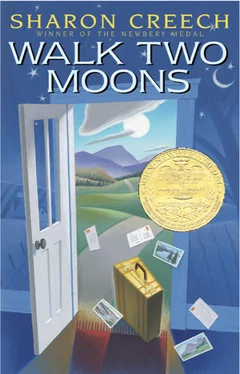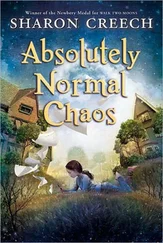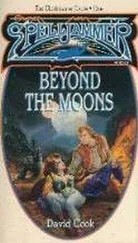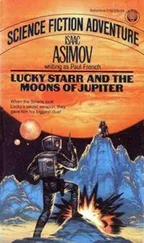Sharon Creech
WALK TWO MOONS
For my sister and brothers:
Sandy, Dennis, Doug, Tom
with love from The Favorite
Don’t judge a man until you’ve walked two moons in his moccasins.
Gramps says that I am a country girl at heart, and that is true. I have lived most of my thirteen years in Bybanks, Kentucky, which is not much more than a caboodle of houses roosting in a green spot alongside the Ohio River. Just over a year ago, my father plucked me up like a weed and took me and all our belongings (no, that is not true—he did not bring the chestnut tree, the willow, the maple, the hayloft, or the swimming hole, which all belonged to me) and we drove three hundred miles straight north and stopped in front of a house in Euclid, Ohio.
“No trees?” I said. “This is where we’re going to live?”
“No,” my father said. “This is Margaret’s house.”
The front door of the house opened and a lady with wild red hair stood there. I looked up and down the street. The houses were all jammed together like a row of birdhouses. In front of each house was a tiny square of grass, and in front of that was a thin gray sidewalk running alongside a gray road.
“Where’s the barn?” I asked. “The river? The swimming hole?”
“Oh, Sal,” my father said. “Come on. There’s Margaret.” He waved to the lady at the door.
“We have to go back. I forgot something.”
The lady with the wild red hair opened the door and came out onto the porch.
“In the back of my closet,” I said, “under the floorboards. I put something there, and I’ve got to have it.”
“Don’t be a goose. Come and see Margaret.”
I did not want to see Margaret. I stood there, looking around, and that’s when I saw the face pressed up against an upstairs window next door. It was a round girl’s face, and it looked afraid. I didn’t know it then, but that face belonged to Phoebe Winterbottom, a girl who had a powerful imagination, who would become my friend, and who would have many peculiar things happen to her.
Not long ago, when I was locked in a car with my grandparents for six days, I told them the story of Phoebe, and when I finished telling them—or maybe even as I was telling them—I realized that the story of Phoebe was like the plaster wall in our old house in Bybanks, Kentucky.
My father started chipping away at a plaster wall in the living room of our house in Bybanks shortly after my mother left us one April morning. Our house was an old farmhouse that my parents had been restoring, room by room. Each night as he waited to hear from my mother, he chipped away at that wall.
On the night that we got the bad news—that she was not returning—he pounded and pounded on that wall with a chisel and a hammer. At two o’clock in the morning, he came up to my room. I was not asleep. He led me downstairs and showed me what he had found. Hidden behind the wall was a brick fireplace.
The reason that Phoebe’s story reminds me of that plaster wall and the hidden fireplace is that beneath Phoebe’s story was another one. Mine.
2
THE CHICKABIDDY STARTS A STORY
It was after all the adventures of Phoebe that my grandparents came up with a plan to drive from Kentucky to Ohio, where they would pick me up, and then the three of us would drive two thousand miles west to Lewiston, Idaho. This is how I came to be locked in a car with them for nearly a week. It was not a trip that I was eager to take, but it was one I had to take.
Gramps had said, “We’ll see the whole ding-dong country!”
Gram squeezed my cheeks and said, “This trip will give me a chance to be with my favorite chickabiddy again.” I am, by the way, their only chickabiddy.
My father said that Gram couldn’t read maps worth a hill of beans, and that he was grateful that I had agreed to go along and help them find their way. I was only thirteen, and although I did have a way with maps, it was not really because of that skill that I was going, nor was it to see the “whole ding-dong country” that Gram and Gramps were going. The real reasons were buried beneath piles and piles of unsaid things.
Some of the real reasons were:
1. Gram and Gramps wanted to see Momma, who was resting peacefully in Lewiston, Idaho.
2. Gram and Gramps knew that I wanted to see Momma, but that I was afraid to.
3. Dad wanted to be alone with the red-headed Margaret Cadaver. He had already seen Momma, and he had not taken me.
Also—although this wasn’t as important—Dad did not trust Gram and Gramps to behave themselves along the way unless they had me with them. Dad said that if they tried to go on their own, he would save everyone a lot of time and embarrassment by calling the police and having them arrested before they even left the driveway. It might sound a bit extreme for a man to call the police on his own tottery old parents, but when my grandparents got in a car, trouble just naturally followed them like a filly trailing behind a mare.
My grandparents Hiddle were my father’s parents, full up to the tops of their heads with goodness and sweetness, and mixed in with all that goodness and sweetness was a large dash of peculiarity. This combination made them interesting to know, but you could never predict what they would do or say.
Once it was settled that the three of us would go, the journey took on an alarming, expanding need to hurry that was like a walloping great thundercloud assembling around me. During the week before we left, the sound of the wind was hurry, hurry, hurry , and at night even the silent darkness whispered rush, rush, rush. I did not think we would ever leave, and yet I did not want to leave. I did not really expect to survive the trip.
But I had decided to go and I would go, and I had to be there by my mother’s birthday. This was extremely important. I believed that if there was any chance to bring my mother back home it would happen on her birthday. If I had said this aloud to my father or to my grandparents, they would have said that I might as well try to catch a fish in the air, so I did not say it aloud. But I believed it. Sometimes I am as ornery and stubborn as an old donkey. My father says I lean on broken reeds and will get a face full of swamp mud one day.
When at last Gram and Gramps Hiddle and I set out that first day of the trip, I prayed for the first thirty minutes solid. I prayed that we would not be in an accident (I was terrified of cars and buses) and that we would get there by my mother’s birthday—seven days away—and that we would bring her home. Over and over, I prayed the same thing. I prayed to trees. This was easier than praying directly to God. There was nearly always a tree nearby.
As we pulled onto the Ohio Turnpike, which is the flattest, straightest piece of road in God’s whole creation, Gram interrupted my prayers. “Salamanca—”
I should explain right off that my real name is Salamanca Tree Hiddle. Salamanca, my parents thought, was the name of the Indian tribe to which my great-great-grandmother belonged. My parents were mistaken. The name of the tribe was Seneca, but since my parents did not discover their error until after I was born and they were, by then, used to my name, it remained Salamanca.
My middle name, Tree, comes from your basic tree, a thing of such beauty to my mother that she made it part of my name. She wanted to be more specific and use Sugar Maple Tree, her very favorite, but Salamanca Sugar Maple Tree Hiddle was a bit much even for her.
My mother used to call me Salamanca, but after she left, only my grandparents Hiddle called me Salamanca (when they were not calling me chickabiddy). To most other people, I was Sal, and to a few boys who thought they were especially amusing, I was Salamander.
Читать дальше












